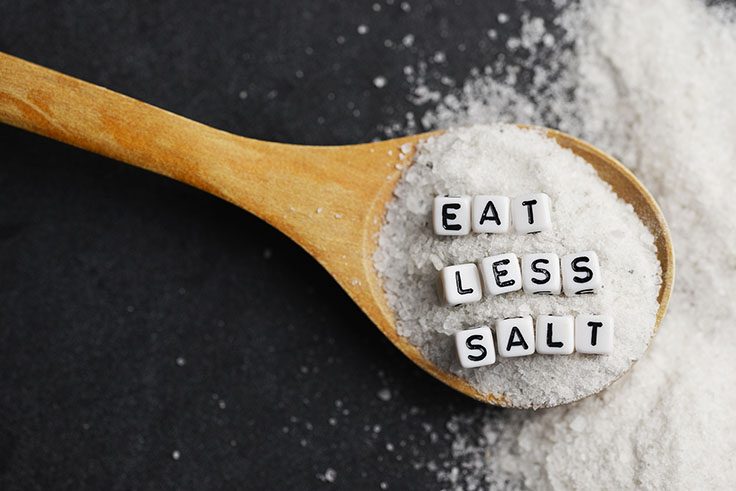
Australia on track to fail on global salt targets, study shows
A new study released for World Salt Awareness Week shows that while many countries are taking action to drop the salt, Australia is falling behind.
Study author Dr Kathy Trieu from The George Institute for Global Health said the lack of progress in Australia is disappointing given that eating less salt is one of the most cost-effective ways of preventing early deaths from diseases linked to high blood pressure.
“While the Government have set some voluntary food reformulation targets, they should be more ambitious and made mandatory to make a real difference. The food industry also has a role to play in making products that have less salt in them,” she said.
“With more than six million Australian adults – or one in three people - having high blood pressure, reducing salt consumption would save thousands of lives each year as well as millions in healthcare costs.”
Globally, high blood pressure accounts for just over ten million deaths and eating too much salt - a leading cause of high blood pressure - is responsible for almost two million deaths.
To reduce premature deaths from non-communicable diseases by a quarter by 2025, the World Health Organization (WHO) recommended that Member States reduce population salt intake by 30 percent in 2013.
At the mid-point for this target in 2019, George Institute researchers looked at all national salt reduction initiatives around the world to determine countries’ progress in achieving the target.
“While we found more countries were taking action on salt, only a small proportion reported decreases in actual salt intakes and no countries have yet met the WHO target,” said Kathy.
Overall the number of national salt reduction initiatives - like food reformulation, front-of-pack labelling, nutrition guidelines in public institutions and salt taxes - was up by almost a third compared to 2014. Twelve countries saw an average decrease in salt intake of at least 1g per day or more - but not Australia.
“Australians are still eating almost double the recommended maximum of 5g - or a teaspoon - of salt per day,” said Kathy
“While we’ve had food reformulation targets, front of pack labelling and national nutrition guidelines for schools in place for some time, these measures all remain voluntary and are clearly not having an impact on actual salt intakes.”
Previous studies have shown that mandatory or legislative approaches may be more effective and produce larger reductions in population salt intake than voluntary measures.
“It’s encouraging to see that the number of countries taking regulatory approaches to salt reduction such as mandatory targets for salt levels in foods, mandatory front-of-pack labelling, setting mandatory nutrition standards and salt taxation increased by 82 percent,” Kathy added.
But despite these increases, the authors concluded that countries needed to accelerate efforts to reduce salt intakes and regularly monitor and evaluate progress to achieve the global salt reduction target by 2025.
And with packaged or processed foods making up three quarters of the daily salt intake in high-income countries like Australia, and more people now eating these foods in lower income countries, a stronger focus on this area is warranted.
“We need three key changes - governments need to set more comprehensive and mandatory targets, industry needs to commit to adhering to product reformulation and consumers need to be empowered to switch from processed to fresh foods,” said Kathy.
“And the report card for Australia reads ‘must try harder’,” she added.









